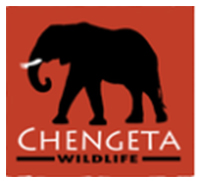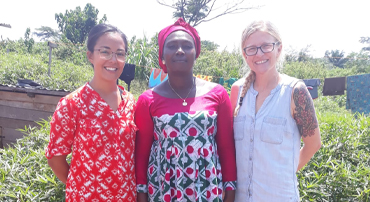Honouring Women in Conservation
Today, on March 8th, Chengeta Wildlife honors International Women’s Day by reflecting on the importance of women in community-engaged conservation. Women make up half of the world’s population, yet that proportion is not well reflected in many conservation and development organizations and initiatives. While disproportionately representing male perspectives is often an unintentional consequence of many initiatives and programs designed to promote wildlife conservation, a greater effort must be made to recognize and adapt programs to female spaces. Doing so will subsequently allow room for women to share input safely and comfortably on future initiatives to improve livelihoods and conserve local ecological integrity.
Amplifying Women’s Voices
Chengeta Wildlife strives to amplify the voices of local women in the areas where we work to create a more equitable vision of sustainable livelihoods and conservation initiatives. One way we aim to achieve this is by hosting workshops and focus groups that are accessible and welcoming to female members of the community. This often means meeting in a space in the community where women feel comfortable and at a time that accommodates the many other facets of work for which women are responsible. While we recognise the gender gap in access to formal education in the regions where we work, we refuse to allow this inequality to impact the types of training and opportunities we offer to local women.
Importance of Women in Community-Engaged Conservation
Trainings and workshops are offered in all local dialects, allowing participants to actively engage in whichever language they are most comfortable. We rely on culturally appropriate and locally developed illustrations in the educational materials we use in all workshops. During a large-scale demographic and socioeconomic study in Dzanga Sangha Protected Areas in Central African Republic, Chengeta and our partners trained 94 local community members in data collection on handheld tablets; women represented half of the individuals trained. Including women, as well as other historically marginalized groups, in all aspects of community-engaged conservation assures that programs are designed holistically with equitable input across all subgroups. This is crucial for sustainable and effective conservation programming. You can read more about our overall community work in our Communities Blueprint article here.
Women and Wildlife Trafficking
Recognizing women’s everyday roles in shaping local ecologies is a critical first step in designing community-engaged conservation efforts. A recent book entitled “Women and Wildlife Trafficking” explores the roles women play in shaping wildlife ecologies and emphasizes the need to refocus conservation programs to consider the specific needs and perspectives of local women. You can read more about efforts to expand the conservation economy into a more gender equitable space here.
Thank You!
Lastly, Chengeta Wildlife would like to give a very big thank you to all the amazing women in the communities in which we are engaged who make our work possible. Without their trust and invaluable input, many of the local conservation initiatives that we support would not exist. Merci beaucoup! Singuila mingui! Melesi!

